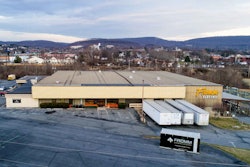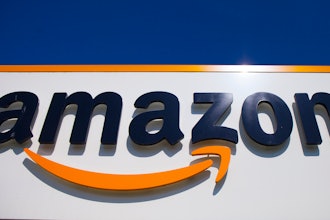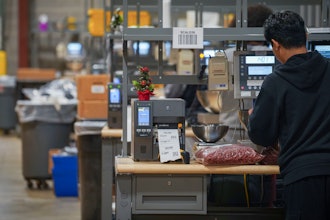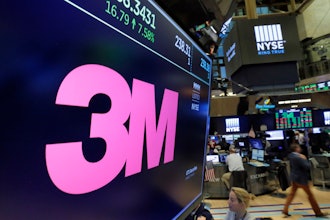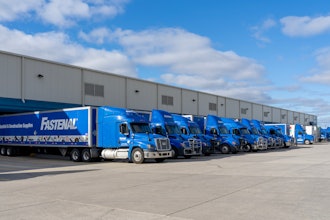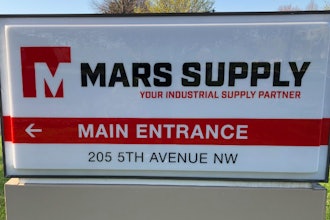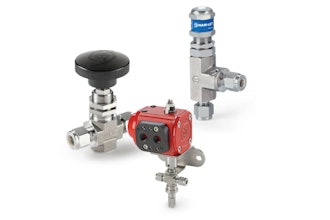
According to the U.S. Bureau of Labor Statistics, in 2015, the number of Millennial employees (those born between 1982 and 2004) will exceed that of Baby Boomers, and by 2030, Millennials will represent 75 percent of the workforce. As the most technologically adept generation in history, the impact Millennials will have on the business world is expected to be significant:
- As employees, Millennials value collaboration, rapid advancement, and innovation.
- As customers, Millennials value choice, flexibility, and the ability to do business using the technology they prefer. Many Millennials research products online, share reviews on social media, order online, and interact with customer service through online chat or social media.
- As suppliers, Millennials prefer partners who can share data streams easily with their own technology, so they can analyze trends and monitor real-time activity.
Here are 5 tactics that can help you prepare your business to succeed with the next generation of customers, partners, and employees.
1. Use a CRM system to strengthen relationships with customers and suppliers. Nothing is more important than maintaining strong relationships with customers and partners. When surveyed, 85 percent of industrial distributors felt that relationships are a primary reason customers do business with their companies. Now that Millennials are the largest generation in the workforce, it’s important to manage those relationships with their preferences in mind. The primary job of a customer relationship management (CRM) system is to keep the business connected to customers, so employees can deliver an exceptional customer experience. Instead of sales professionals owning customer relationships, the CRM system records customer preferences, opportunities, and purchase histories for the benefit of the company and all customer-facing employees. A CRM system is also a good tool for managing relationships with supply chain partners.
A CRM system is only useful if it is widely adopted across the business. Therefore, distributors need to evaluate the future potential of CRM systems in terms of the technology capabilities that Millennials value, including mobility, social media integration, and cloud-based access. In fact, according to a Nucleus Research report, "The Value of Mobile and Social for CRM," a CRM system with both social and mobile capabilities increases sales productivity by more than 26 percent.
And, because Millennials expect technology to work for them, not the other way around, a CRM system should adapt easily to individual working preferences. For example, it should offer customizable dashboards to reflect individual preferences.
2. Embrace mobility to get the right information to the right people.
Eight out of ten Millennials reach for their smartphones first thing in the morning, and 87 percent report that the phone "never leaves my side, day or night," according to a survey by Mitek and Zogby Analytics. With these statistics, it’s easy to understand why Millennials are such enthusiastic adopters of mobile devices and applications in their work lives. Many Millennial employees prefer to use mobile devices over a PC or laptop. By providing mobile access to CRM and inventory management applications, distribution companies can give field sales professionals the ability to look up customer and product information, current inventory levels, purchase history, logistical information, and more — anytime, from anywhere. It’s also important to remember that Millennial customers prefer mobile devices for using the Internet and often for making purchases. Unfortunately, 86 percent of Millennials surveyed by Mitek and Zogby Analytics report that "there are still a lot of websites that don’t offer good mobile functionality." To gain loyal customers, distributors should invest in mobile apps and mobile-friendly websites that make purchasing easier.
3. Consider cloud-based applications for new technology.
Distributors should consider cloud computing (also called software-as-a-service or SaaS) in their future technology plans. A SaaS technology model puts the burden of software development, maintenance, and updates on the software vendor who hosts the application. SaaS makes it possible to deploy new applications more quickly, and can empower distributors to focus more on their customers and core competencies, while moving away from complex IT infrastructure. Cloud models shift what was once a capital expenditure (software) to an operating expenditure (service) by spreading the costs over time using a subscription-pricing model. This is an important driver for businesses, and helps to explain why 65 percent to 70 percent of businesses surveyed plan to move some of their business application processing to the cloud within the next two years. Millennial employees see the value of the cloud because it allows them to access applications securely, from anywhere with an Internet connection. This gives them the flexibility to share information in real-time between multiple offices or warehouses, to telecommute, and to stay connected to work while traveling.
4. Invest more in online commerce as a key driver of future business.
E-commerce is essential; every distributor needs to be able to take online orders. With Millennials forming the largest share of future customers, having a website won’t be good enough. Millennial customers will visit the website first, before contacting anyone from the company. For many prospective customers, the website may be their only interaction with a new distributor.
Obviously, the actual purchase and monetary transaction on the website must work flawlessly. But for Millennial purchasers, the entire customer experience matters. The website should be fully optimized and functional from mobile devices. Consider the needs of buyers to determine what’s needed on the website. B2B purchasers might benefit from a product selection app, live quotes, and freight calculations. All customers would like to be able to live chat with customer service if needed during the ordering process. Distribution businesses should continually invest to create an easier, more robust online customer experience that will build competitive advantage for the future.
5. Improve inventory management to maintain a competitive edge.
An efficient warehouse can be the key to unlocking additional profitability for distribution businesses. Millennials have grown up in the era of Amazon and other marketplaces. They expect to be able to find, select, and purchase any type of product with ease and efficiency. They’re looking for a hassle-free customer experience, and that experience is likely to happen online.
If distributors want Millennials’ business, they need to either have inventory in stock or lock down fast, reliable supply chains that can meet the expectations of impatient purchasers. If one distributor can’t fulfill an order today, Millennials may search online for another. Warehouse automation and inventory management technology can help distributors improve operational efficiency, manage inventory levels, and run a profitable next-generation warehouse. A warehouse management system (WMS) can combine inventory control capabilities with barcoding or RFID and advanced picking methodologies to move inventory through the warehouse more quickly.
A WMS can help distributors fulfill more orders, more accurately, with fewer warehouse employees. Integration between the WMS, CRM, and ERP systems is essential for a smooth customer experience with no surprises. ERP and WMS systems typically service "back-office" employees, while CRM solutions service "front-office" employees like sales reps, marketing personnel, and support technicians. When these front-office and back-office solutions are integrated and can synchronize data, the entire organization can gain greater visibility into customer relationships — from lead to customer.
About the author
Stewart Applbaum is responsible for the growth and profitability of Infor’s hospitality, banking, retail and services industries business units, directing all related industry, product, and sales strategies. He is also in charge of global enterprise software for Marketing Management, CRM, Enterprise Financial Group, SMB Financials, CloudSuite Business and CloudSuite corporate, overseeing activities and growth across all of Infor with these solutions.






